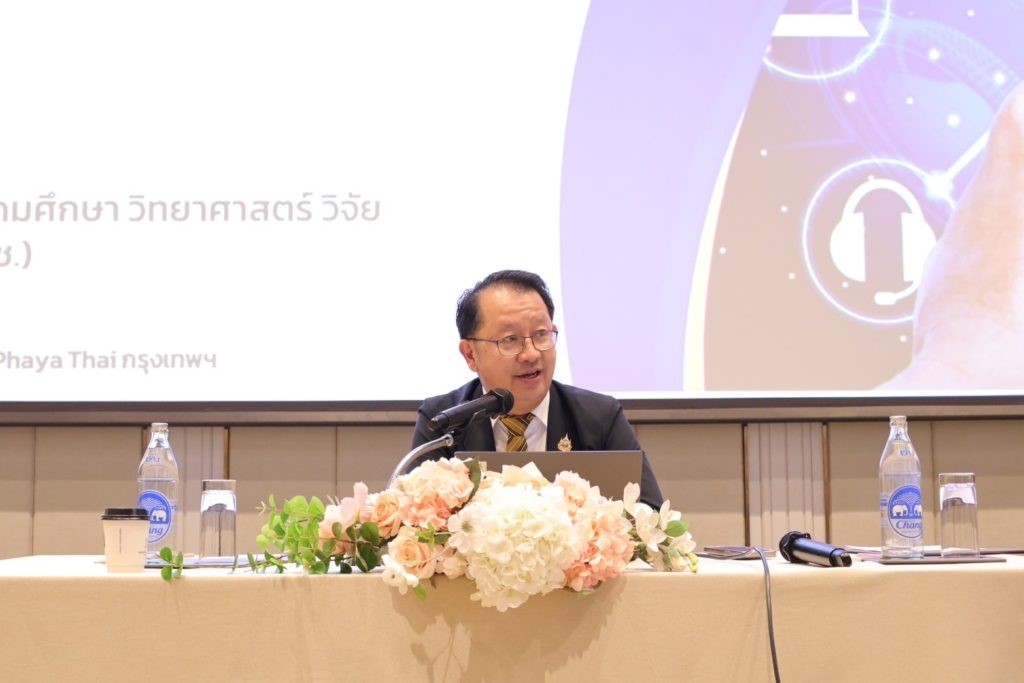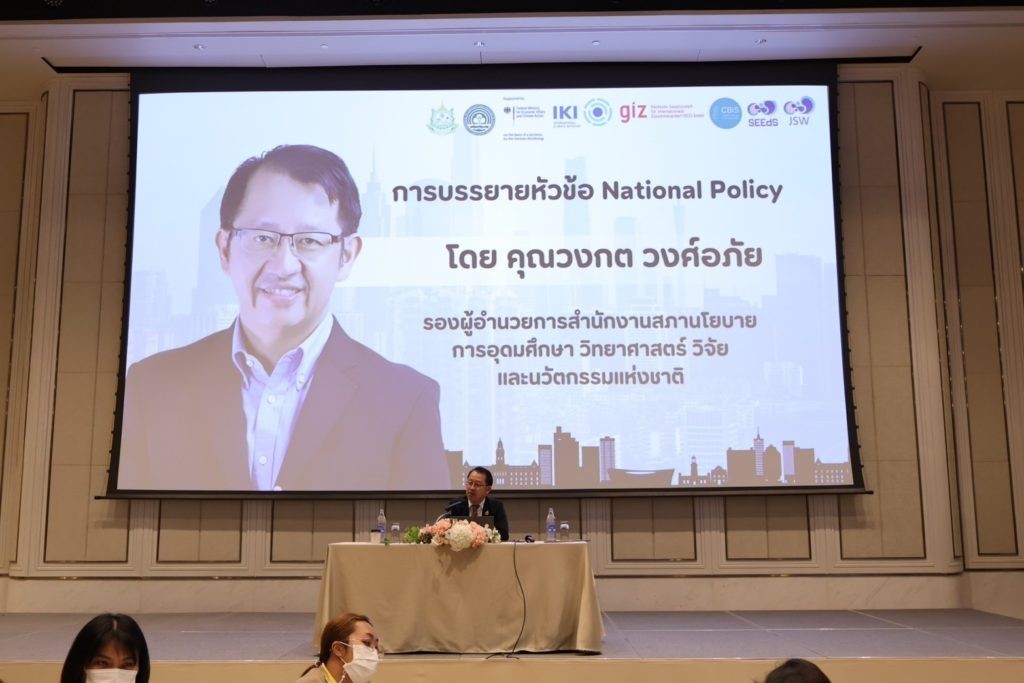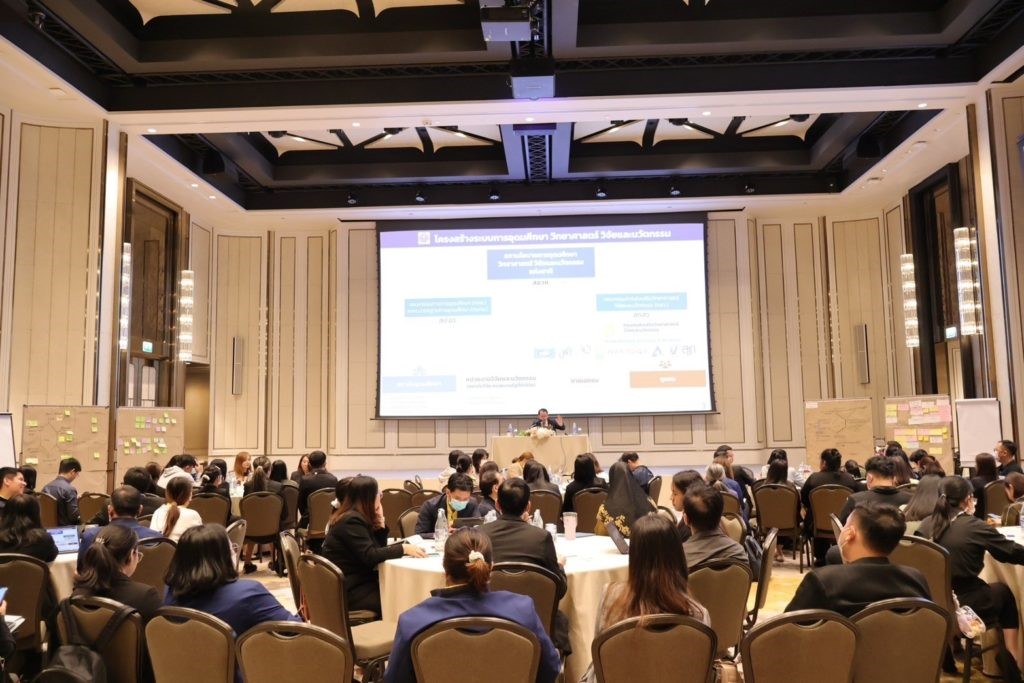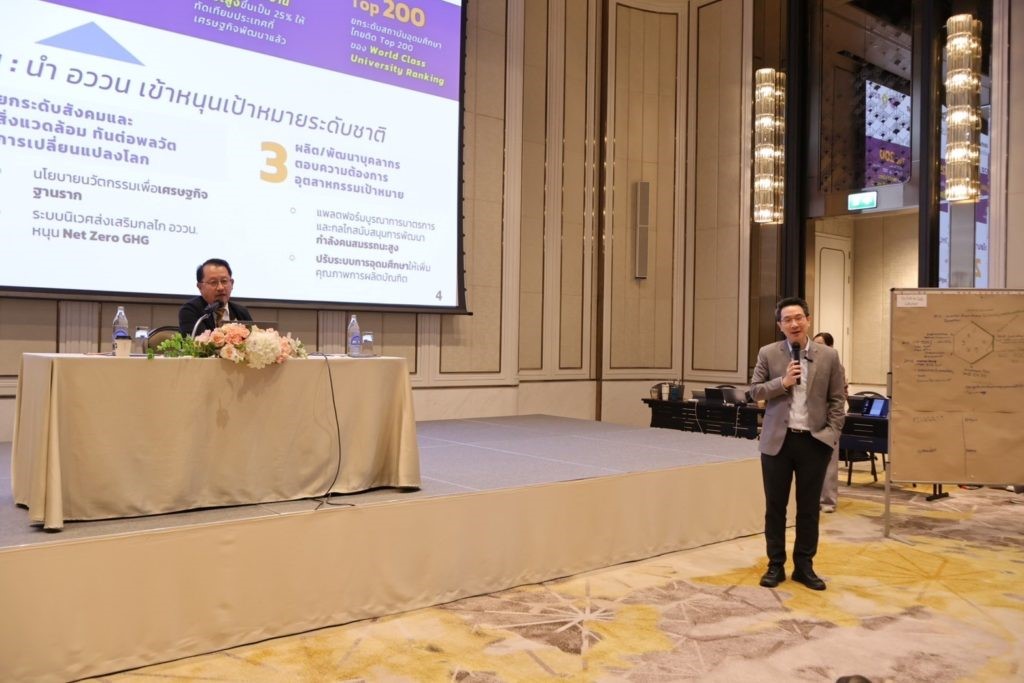NXPO Vice President Assoc. Prof. Wongkot Wongsapai recently delivered a presentation at the Climate Change Mitigation and Planning (CCMP) course. As part of the Empowering Thailand’s Department of Climate Change and Environment (EMPOWER) project, the course was organized by the Department of Climate Change and Environment (DCCE), in collaboration with GIZ Thailand and the Carbon Institute for Sustainability (CbiS), on 27 January 2025, with 100 participants from the DCCE in attendance.


Dr. Wongkot’s presentation focused on Thailand’s national science, research and innovation policy, as part of the session on “Movement on Green Technology & Innovation.” He highlighted NXPO’s role under the Ministry of Higher Education, Science, Research, and Innovation (MHESI), emphasizing its responsibility for policy development across higher education and science, including social sciences. NXPO supports the National Higher Education, Science, Research, and Innovation Policy Council, chaired by the Prime Minister, which is responsible for setting policies and translating them into actionable plans. He then explained the national research funding system. The Thailand Science, Research, and Innovation (TSRI) oversees planning and budget allocation from the National Science, Research, and Innovation Fund to various funding agencies. Key agencies involved in climate change-related funding include: the Program Management Unit for Area-Based Development (PMU-A), Program Management Unit for Competitiveness (PMU-C), Program Management Unit for Human Resources & Institutional Development, Research, and Innovation (PMU-B), National Research Council of Thailand (NRCT), National Innovation Agency (NIA), and Agricultural Research Development Agency (ARDA).
Climate change policy is a priority across ministries, and recently, NXPO, with expert support from the Organisation for Economic Co-operation and Development (OECD), organized a workshop on Science, Technology, and Innovation (STI) Strategy for Carbon Neutrality and Transitions. As Thailand moves forward with its accession process to become an OECD member state, the country is aligning its domestic laws, policies, and regulations with OECD standards, which include climate change considerations.


Dr. Wongkot highlighted NXPO’s climate action initiatives, particularly its target to support the reduction of 10 million tons of CO₂ equivalent through various policy initiatives. Key projects include the Net Zero Campus Network, which aims for at least 50 universities to commit to achieving net-zero greenhouse gas emissions. NXPO also supports capacity-building programs for assessors of Carbon Footprint Products (CFP) and Carbon Footprint for Organizations (CFO). Additionally, NXPO is involved in the “Saraburi Sandbox” project, which pilots low-carbon city development.
NXPO works closely with DCCE, serving as Thailand’s National Designated Entity (NDE) for climate change technology development and transfer under the United Nations Framework Convention on Climate Change (UNFCCC). This year, NXPO will prepare the second Technology Needs Assessment (TNA) report, identifying Thailand’s technological needs for greenhouse gas reduction, for submission to the United Nations.
In collaboration with the Climate Technology Centre and Network (CTCN) under the UNFCCC, NXPO has undertaken several initiatives in climate change mitigation and adaptation. These include the development of hydrogen policy, a feasibility study of blockchain-based crop insurance, and research utilization efforts.
Thailand’s green technology ecosystem consists of eight key components: 1) Government, 2) Leaders/Pioneers, 3) Scientists/Researchers, 4) Entrepreneurs, 5) Investors, 6) Relevant Companies, 7) Startup Incubators, and 8) Workforce. NXPO promotes research commercialization through the University Holding Company mechanism and entrepreneurship programs.
Dr. Wongkot concluded by outlining the critical success factors for STI policy development and deployment: 1) Public and private finance for STI, 2) International STI coordination, 3) Cross-government coherence, and 4) Coordination of international STI efforts.







